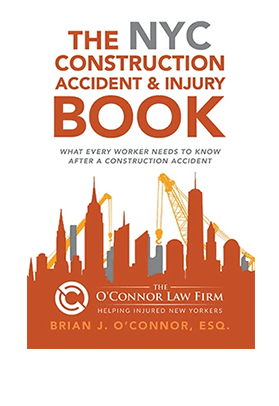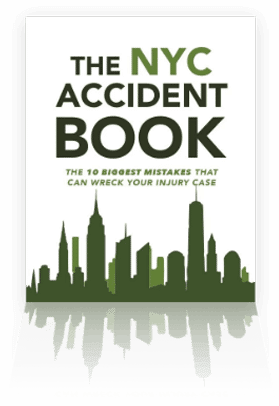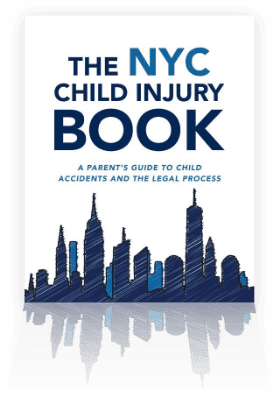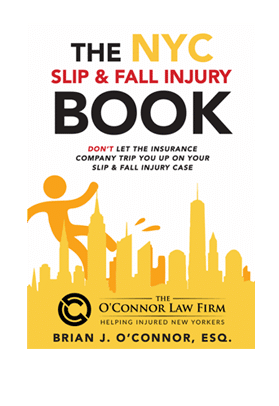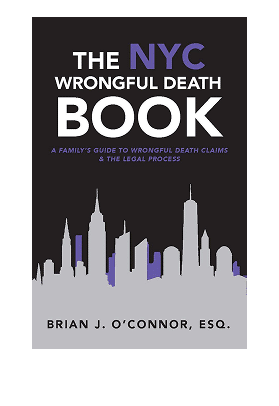New York City Police Officer Injury Attorney Pursuing Compensation for New York’s Finest
If you’ve been injured in the line of duty as a New York City Police Officer, call O’Connor Injury Law today and let our Staten Island and New York City police injury lawyers help you understand your legal options.
In addition to line of duty benefits, you may be entitled to seek compensation for your injuries through a personal injury lawsuit. Contact us today for a free case review. We will gladly answer your questions and guide you through the legal process.
NYPD Police Officers Put Their Lives In Danger To Keep Us Safe
New York City Police Officers put their lives in danger on a daily basis to make our City a safer place. Police Officers have a higher risk of incurring a work-related injury or illness than most other occupations.
According to FBI statistics, 106 law enforcement officers were killed in line of duty incidents in 2018. Of these, 55 officers died of criminal acts while 51 officers died from accidents.
NYPD Police Officer Injuries and Accidents
According to the U.S. Bureau of Labor Statistics, approximately 31,000 nonfatal injuries involving days away from work were reported for law enforcement officers on average from 2009 to 2014. Here are some of the types of incidents and injuries Police Officers suffer in the line of duty in making our neighborhoods safer for our families:
- Shootings
- Spinal injuries
- Physical attacks by suspects
- Internal organ damage
- Police pursuit injuries
- Shoulder and knee injuries
- Station house accidents
- Broken bones
- Defective police equipment
- Head injuries
- Vehicle accidents
- Wrongful death
Compensation Options For NYPD Officers Injured In The Line Of Duty

It is only fair that the men and women who are injured while protecting their fellow New Yorkers should also be protected themselves.
New York law provides several options for NYPD officers and their families who are injured in the line of duty, and our New York City and Staten Island police officer injury lawyers are happy to help.
LODI Benefits Pursuant To General Municipal Law (GML) 207-c
While NYPD police officers do not receive workers compensation benefits, they do receive similar line of duty injury (LODI) benefits under GML 207-c.
Specifically, NYPD officers who are injured on the job receive their full salary during the time they are temporarily unable to perform the duties of a police officer. Injured officers also received full medical benefits and healthcare during this time.
Disability Retirement Benefits
NYPD officers may be entitled to disability retirement benefits if they are permanently incapacitated from performing the duties of a police officer.
Ordinary Disability Retirement (ODR)
To be eligible for an ODR pension, a member must be in active service and have at least five years credited service but not yet eligible for a Normal Service Retirement benefit.
To retire for ODR a member must also be eligible to receive primary Social Security Disability Benefits.
NYPD officers who joined the Police Pension Fund (PPF) on or before June 30, 2009, with more than ten years of credited service would be eligible for an ODR of 50% of their final average salary.
Any NYPD officer who joined the PPF on or after July 1, 2009 would be eligible to receive an ODR of approximately 33.33 % of their final average salary.
Accident Disability Retirement (ADR)
To be eligible for an Accident Disability Retirement (ADR) Pension, a member must be in active service and be physically or mentally incapacitated for the performance of duty as the natural and proximate cause of an accident sustained in active service and not caused by the member’s own willful negligence.

For NYPD officers who joined the Police Pension Fund (PPF) before July 1, 2009 or after March 30, 2017, ADR pensions provide for 75% (3/4) of an officer’s final average salary.
Any NYPD officers who joined the PPF between July 1, 2009 and March 30, 2017 may be limited to 50% of their final average salary less 50% of primary social security benefits if they did not timely choose to opt in to the Tier 3 Enhanced Plan which provides for the more generous 75% (3/4) pension. ADR Pensions are generally not subject to taxation.
New York Police Officers Can Also Sue For Injuries Sustained In The Line Of Duty
In addition to receiving a disability pension, NYPD police officers are also entitled to bring civil lawsuits for injuries sustained in the line of duty.
However, not every injury sustained during the course of employment will entitle an NYPD officer to compensation. It is important to understand your rights and the various types of claims that can be made.
What is The Firefighters Rule? How Does It Apply to New York City Police Officers?
The Firefighters Rule is an old law that prevented firefighters and police officers from suing anyone if they sustained injuries that were associated with the risks and dangers of their job.
For example, a police officer sustaining a serious eye injury caused by a perpetrator he was trying to handcuff would not be permitted by law to sue the individual causing the eye injury.
The rationale stemmed from the idea that police officers are specially trained to face the many risks and dangerous hazards of their job and are specifically compensated for taking those risks through wages and benefits.
Over time, it became clear that this rule was unfair to those men and women and their families who sustained significant injuries resulting in permanent disabilities or wrongful death. The rule also permitted negligent or intentional acts of others to go without some measure of justice.
General Municipal Law 205(e)
New York lessened the burden of the Firefighter Rule in 1989 by enacting General Municipal Law 205(e) for Police Officers.
Pursuant to General Municipal Law 205(e), police officers can bring claims against anyone, including their own employer, The City of New York and The New York City Police Department as well as other third-parties for injuries that are associated with the risks and dangers of their job.
What Do You Need To Prove To Establish A 205(e) Case?
In order to establish a 205(e) case, you must prove that someone violated a federal, state, or local law, rule or ordinance and that the violation directly or indirectly caused your injury. You must have a sufficient statutory violation in order to sustain a 205(e) cause of action.
For instance, if a police officer is a passenger in a police car and a coworker is driving and violates the Vehicle and Traffic Law (VTL) by running a red light on routine patrol thereby causing an accident, the passenger will have established a GML 205(e) case.
Similarly, a police officer who falls down a staircase without a railing while chasing a perpetrator in an apartment building can establish a 205(e) case against the building owner for a violation of the Building Code which requires railings.
Our Police Office Injury Lawyer Explains Common Law Negligence
General Obligations Law 11-106 Against Third-Parties (Not Employer)
In 1996, the Firefighter Rule was further abandoned with the passage of General Obligations Law 11-106 which made it possible for NYPD officers to bring claims for injuries caused by the negligence of someone other than their employer – even if it associated with the dangers inherent in their jobs.
For example, if a police officer is chasing a suspect and is caused to fall due to a broken step on someone’s property, the property owner could be held liable for the officer’s injuries. Under GOL 11-106, NYPD officers are not required to establish a violation of a statute. Instead, an officer needs to establish only common law negligence.
Negligence Claims Against Employer (City of New York)
The Firefighter Rule only limited police officers’ ability to bring claims for injuries which arose out of activities that were associated with the increased risks and dangers of their jobs.
In fact, the Firefighter Rule still exists today to the extent it only applies to the officer’s employer.
However, NYPD Officers can sue their employer for common law negligence when the activity which gave rise to the injury does not increase the likelihood of injury but merely “furnishes the occasion” for the injury.
For example, if a police officer slips on a liquid spill in the station house while walking to the bathroom, he would establish a common law negligence claim against The City of New York and The New York City Police Department. The act of walking to the bathroom in the station house did not increase the likelihood of injury (like chasing a suspect) but instead, merely furnished the occasion for the injury.
Every accident is unique and even a small variation in the facts can change whether an NYPD officer has a valid claim or not. It can seem confusing. It is important that you find a police officer injury attorney who understands municipal law and has experience handling these types of cases.
Contact a New York City Police Officer Injury Lawyer to Get Help
If you or a family member have been injured in the line of duty and have questions about what to do next, contact us today and let us help you. We will provide answers to your questions and give you the confidence to know that you are one step closer to getting your life back on track.
We offer free consultations with no obligation. We are available 7 days a week. Call us today at 212-566-4868 or 718-948-3500 and let us help you now.

